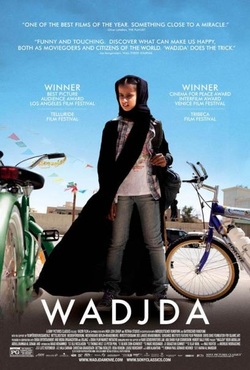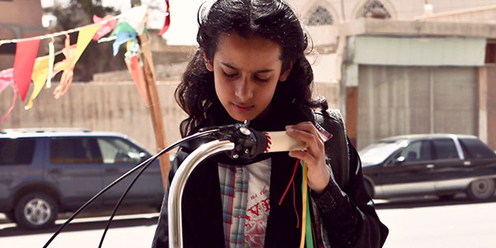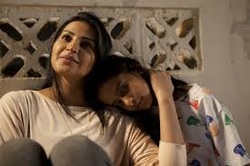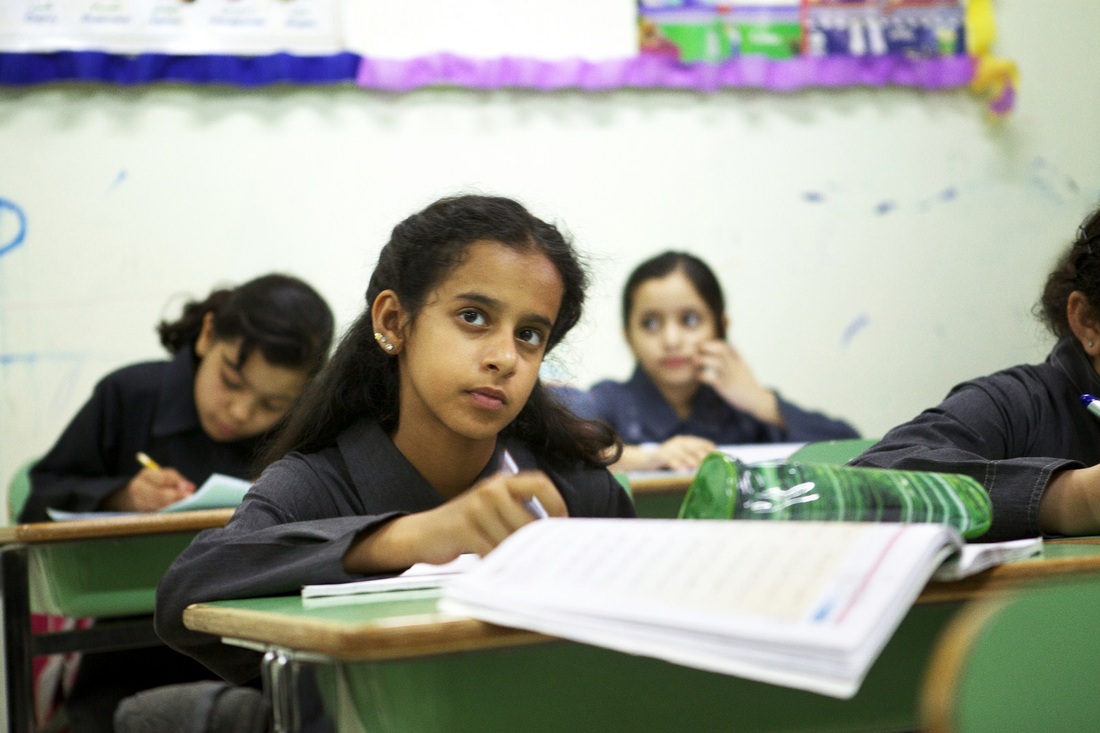
If you’re like me, you are constantly floored by the amazing performances child actors repeatedly seem to bring to film. The star of Wadjda, Waad Mohammed (a first time actor), is another such instance. Waad is magnificent, believable at every moment, with a mere glance able to convey a subtle feeling to a worldwide audience. What is it about young actors that makes such brilliance almost commonplace? Is there something about the pre-pubescent mind that allows its owner to focus and commit more deeply? A fleeting mixture of innocence and faith?
We quickly learn that girls in Saudi Arabia are not allowed to ride bicycles—boys, no problem. Nor are adult women allowed to drive cars. Nor are they allowed to show their faces in public, or walk in public unless accompanied by a relative. School girls playing outside during recess must go inside if men are within sight and can see them playing. The list of prohibitions for Saudi females goes on and on, and we see how Wadjda navigates through this cultural minefield day after day.

Wadjda has such spirit and drive that, for much of the movie, I was frustrated by the fact that she was stuck with parents who couldn’t possibly understand her or support her properly—especially her mother (her father mostly isn’t in the picture in any case). But the viewer gradually comes to understand how complex the family dynamic is. The mom can no longer bear children and her husband wants a son and may be looking for a second wife. Gradually we come to see that the mom too is beginning to crumble under the strictures of Saudi Arabia’s deeply patriarchal society.
Wadjda’s performance in this film is truly memorable, but the other child star, Wadjda’s male friend, played by Abdullrahman Algohani, is no slouch either. Nor is the intransigent principal of Wadjda’s school, played by Ahd Kamel (one truly wants to throw tomatoes at her), and Wadjda’s mother, played by Reem Abdullah—all turn in stellar performances.

9/10

